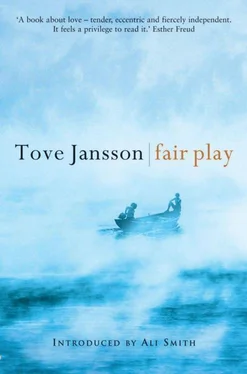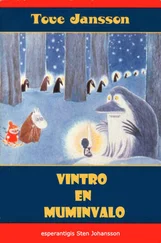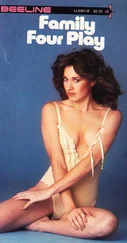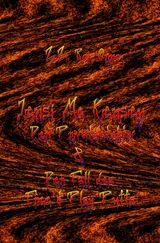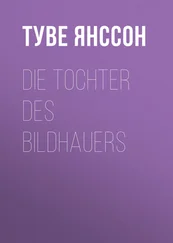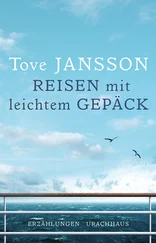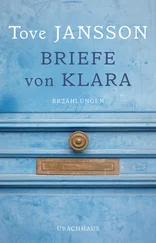“Neighbour?”
“Yes, a woman who just goes on and on about what she should do and what she should wear and what food she should buy and how to file her taxes and so on.”
“Really?” said Jonna. “Remarkable. It seems to me there’s a lot of affection in all that. I begin to suspect that maybe your poor Linnea did get a look at the fireworks after all and that she’s getting along just fine. Write to her, now, and get it out of the way.”
Mari sat down and wrote. When she was done, she went into the studio and asked if she could read it aloud.
“I’d rather you didn’t,” Jonna said. “Your juice is on the spice shelf. And take the torch, the light’s out in the attic. Are you going to the post office tomorrow?”
“Yes. Do you want me to pick up your parcels?”
“I’ll get them later; they’re too heavy. But could you pick up some tomatoes and cheese and detergent on the way home? And mustard? I made a list. And put on something warm; they’re saying it’ll be down to ten degrees tomorrow. Now don’t lose the list, and be careful on the street — it’s going to be really icy.”
“Yes, yes, yes,” Mari said. “I know, I know.”
On her way across the attic, Mari stopped as usual and gazed out across the harbour. She thought absent-mindedly of Linnea, who knew nothing about love.
MARI DEVELOPED A SUDDEN INTEREST IN CEMETERIES the year that she and Jonna took their long trip. Wherever they went, she’d find out where the cemetery was and wouldn’t rest until she’d seen it. Jonna was surprised, but resigned herself to this odd mania and supposed it would pass. It was wax museums the last time, but it hadn’t lasted very long. She followed along obediently, up one street and down another through the grave keepers’ quiet, neatly ordered villages, shooting a little film here and there, although she had never cared much for things that stood still. It was very hot.
“Of course it’s very pretty,” said Jonna experimentally. “But the cemeteries at home are much prettier, and you don’t visit them.”
“No,” Mari said, “those are just people we know. These are more distant.” And she changed the subject.
The graves Mari looked for were the forgotten, overgrown graves, and she stood by them for a long time, utterly content among the uncontrollable vegetation playing jungle across the hallowed ground. There was the same absolute feeling of calm on the Ile de Sein, the last sliver of land into the Atlantic, where the gravestones had sunk deep into the sand that continually drifted up and blew away again. They could just barely make out the texts that salt water and wind had tried to wipe away.
“And Pompeii?” Jonna suggested. “The whole city’s a cemetery. Completely empty and anonymous.”
“No,” said Mari, “not empty at all. In Pompeii they’re still there, everywhere.”
They went to Corsica, to Porto Vecchio, and Jonna asked, “How about going on by bus? Then we wouldn’t have to take a hotel for the night.” She looked at Mari for a moment and added, “Well, whatever you want. We’ll do the cemetery.”
Here the stones carried photographs of the dead, stiffly staring photographs surrounded by wax flowers. In the hotel room, Mari tried to define it. “It was horrible… It makes them still there more than ever!”
Jonna was sitting at the table with the map and the bus schedule, making notes, considering, planning, and, when Mari repeated how horrible it was, she threw her notes across the room and burst out, “Horrible and horrible! Leave the dead alone and start behaving like you were alive! Be a travelling companion!”
“Forgive me,” said Mari. “I don’t know what’s come over me.” And Jonna said, “We’ll give it some time. It’ll be okay.”
That evening, Jonna was filming in Porto, on a narrow street at the edge of town. All the windows and doors stood open because of the heat, and the light was red and golden in the sunset. Jonna filmed the children playing on the street, trying to get as much as she could until they suddenly realized what she was doing and went all unnatural, flocking around her and playing the clown.
“This won’t be any good,” she said. “Too bad. The light is so good.”
When Jonna put the Konica in its case, a little boy came up to her with a drawing he’d made and asked if she’d film it for him.
“Of course,” Jonna said, wanting to be nice. “I’ll film you while you draw.”
“No,” said the boy. “Just the picture.” And he held up his drawing. It was done with a thick felt pen on a piece of cardboard ripped from a packing box, perhaps, and the picture was very expressive.
“It’s a grave,” the boy said.
Very true, a distinct grave with a cross, wreaths, and people weeping. More interesting was the underlying cross-section of black earth and a coffin in which a person lay baring his teeth. An altogether gruesome picture. Jonna filmed it.
“Good,” the boy said. “Now, for sure, he’ll never come back up. I just wanted to make sure.”
A woman came out on her steps and called to him. “Come inside,” she said, “and stop this eternal nonsense!” She turned to Jonna and Mari and said, “You have to forgive Tommaso. He draws the same picture every time, and it happened a year ago.”
“Was it his father?” Mari asked.
“No, no, it was his poor brother, his older brother.”
“And they were very close?”
“Not at all,” the woman answered. “Tommaso didn’t like him, not a bit. I just don’t understand the child.”
She shoved the boy into the house. Before he disappeared, he turned and said, “Now, for sure, he’ll never come back up!”
They walked back along the alley, the evening light still very red.
Mari repeated slowly, “Now, for sure, he’ll never come back up…”
“I caught the red light,” Jonna said. “And his eyes above the cardboard. It’ll be good.”
They travelled on to the next town and Jonna spread out the city map to find the cemetery.
“You don’t need to look for it,” Mari said. “I don’t think I want to go.”
“How come?” said Jonna.
Mari replied that she didn’t really know; it just didn’t seem important.
ONE AUTUMN, JONNA TOOK A PRIVATE PUPIL, a girl named Mirja. She was a large, unusually cheerless person who wore a cape and an artist’s beret. Jonna declared that Mirja had talent, but that before anything could be done with it the girl would have to learn to respect her materials, which might take time. At the moment, she was leaving printing ink on the plates, digging deep holes in the jars of coloured ink, and tossing cotton waste in with the tarlatan — all unforgivable sins.
“I have to start right from the beginning,” Jonna said. “She knows nothing of the serious facts of graphics; she just makes gifted pictures.”
“How long is she going to be working with you?” Mari asked. “Are we going to feed her, too?”
“No, no, just coffee, maybe a sandwich or two. She’s always hungry. It makes me think of my own student days, when I never got to eat as much as I wanted.”
On the days Mirja came, Jonna couldn’t work with anything but Mirja. Mari kept out of the way and worried. Of course Jonna had a natural gift for teaching, she’d been an enthusiastic teacher at the Art Academy for many years, until she got tired of the whole thing and wanted to be left in peace with her own work. In any case, Mari thought, teaching, a real capacity to teach — that had stuck with her. She liked teaching. And Mari thought she understood the attraction of passing knowledge along in the hope that at least one person will manage to have a reasonable career… Nevertheless, Mari was highly suspicious of Mirja and her arty cape. Occasionally she’d ask how the instruction was coming along. Jonna answered curtly that at any rate her pupil had learned respect for the copper plates and had begun to clean up after herself.
Читать дальше
